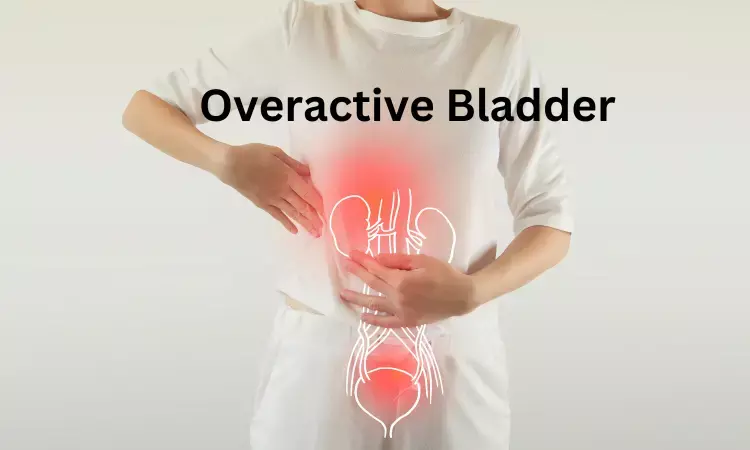- Home
- Medical news & Guidelines
- Anesthesiology
- Cardiology and CTVS
- Critical Care
- Dentistry
- Dermatology
- Diabetes and Endocrinology
- ENT
- Gastroenterology
- Medicine
- Nephrology
- Neurology
- Obstretics-Gynaecology
- Oncology
- Ophthalmology
- Orthopaedics
- Pediatrics-Neonatology
- Psychiatry
- Pulmonology
- Radiology
- Surgery
- Urology
- Laboratory Medicine
- Diet
- Nursing
- Paramedical
- Physiotherapy
- Health news
- Fact Check
- Bone Health Fact Check
- Brain Health Fact Check
- Cancer Related Fact Check
- Child Care Fact Check
- Dental and oral health fact check
- Diabetes and metabolic health fact check
- Diet and Nutrition Fact Check
- Eye and ENT Care Fact Check
- Fitness fact check
- Gut health fact check
- Heart health fact check
- Kidney health fact check
- Medical education fact check
- Men's health fact check
- Respiratory fact check
- Skin and hair care fact check
- Vaccine and Immunization fact check
- Women's health fact check
- AYUSH
- State News
- Andaman and Nicobar Islands
- Andhra Pradesh
- Arunachal Pradesh
- Assam
- Bihar
- Chandigarh
- Chattisgarh
- Dadra and Nagar Haveli
- Daman and Diu
- Delhi
- Goa
- Gujarat
- Haryana
- Himachal Pradesh
- Jammu & Kashmir
- Jharkhand
- Karnataka
- Kerala
- Ladakh
- Lakshadweep
- Madhya Pradesh
- Maharashtra
- Manipur
- Meghalaya
- Mizoram
- Nagaland
- Odisha
- Puducherry
- Punjab
- Rajasthan
- Sikkim
- Tamil Nadu
- Telangana
- Tripura
- Uttar Pradesh
- Uttrakhand
- West Bengal
- Medical Education
- Industry
Study Links Overactive Bladder to Cognitive Decline in Seniors, Depression as Key Mediator

China: A recent study exploring the association between overactive bladder (OAB) and cognitive decline in elderly adults has uncovered compelling findings that suggest depression plays a key role in mediating this relationship. Using a weighted analysis from the National Health and Nutrition Examination Survey (NHANES), the study revealed that OAB in older adults (aged ≥60) has been significantly linked to reduced cognitive function, with depression accounting for more than a third of this association.
"Cognitive test scores were lower in individuals with OAB, and the rate of depression was more than twice as high compared to those without OAB (15% versus 6.05%). Additionally, individuals with OAB experienced a 14% greater decline in cognitive health z-scores than those without the condition," Ling Liu, University of International Business and Economics, Chaoyang District, Beijing, P. R. China, wrote in Scientific Reports.
Overactive bladder is a common condition among older adults and may be associated with cognitive health. The study examined the relationship between OAB and cognitive function in U.S. adults aged 60 and older, utilizing data from the NHANES 2011–2014.
For this purpose, Ling Liu conducted a cross-sectional analysis using a nationally representative sample of 2,324 adults (45.95% male, 54.05% female), with 755 individuals diagnosed with overactive bladder (OAB). Cognitive health was assessed through the Consortium to Establish a Registry for Alzheimer’s Disease-Word Learning (CERAD W-L), Animal Fluency Test (AFT), and Digit Symbol Substitution Test (DSST). OAB was defined by a score greater than three on the Overactive Bladder Syndrome Symptom Score (OABSS).
The study also recorded depression incidence. Weighted linear regression models, adjusted for demographic, behavioral, and comorbid factors such as diabetes and kidney disease, were used to examine the independent association between cognitive health and OAB.
The study revealed the following findings:
- Cognitive scores were significantly lower in the OAB group than the non-OAB group across all cognitive tests.
- The incidence of depression was notably higher in the OAB group (15%) compared to the non-OAB group (6.05%).
- Regression analysis showed a 14% decrease in cognitive health z-scores in patients with OAB.
- Depression was found to mediate 34.56% of the association between OAB and cognitive health.
- This negative association remained consistent across subgroups based on demographics, behavioral factors, and comorbidities.
The findings of this study establish a strong link between overactive bladder and cognitive health, with depression identified as a significant mediator in this association among older adults.
"However, further research is required to fully understand the complex mechanisms underlying the relationship between OAB and cognitive decline. Additionally, healthcare providers, particularly psychiatrists, should pay greater attention to the interconnectedness of urinary health, depression, and cognitive dysfunction in older adults. Early detection and management of OAB are essential for preventing further cognitive decline in this population," Dr. Ling Liu concluded.
Reference:
Liu, L. (2025). Exploring the Association Between Overactive Bladder (OAB) and Cognitive decline: Mediation by depression in elderly adults, a NHANES weighted analysis. Scientific Reports, 15(1), 1-11. https://doi.org/10.1038/s41598-025-86267-6
Dr Kamal Kant Kohli-MBBS, DTCD- a chest specialist with more than 30 years of practice and a flair for writing clinical articles, Dr Kamal Kant Kohli joined Medical Dialogues as a Chief Editor of Medical News. Besides writing articles, as an editor, he proofreads and verifies all the medical content published on Medical Dialogues including those coming from journals, studies,medical conferences,guidelines etc. Email: drkohli@medicaldialogues.in. Contact no. 011-43720751


